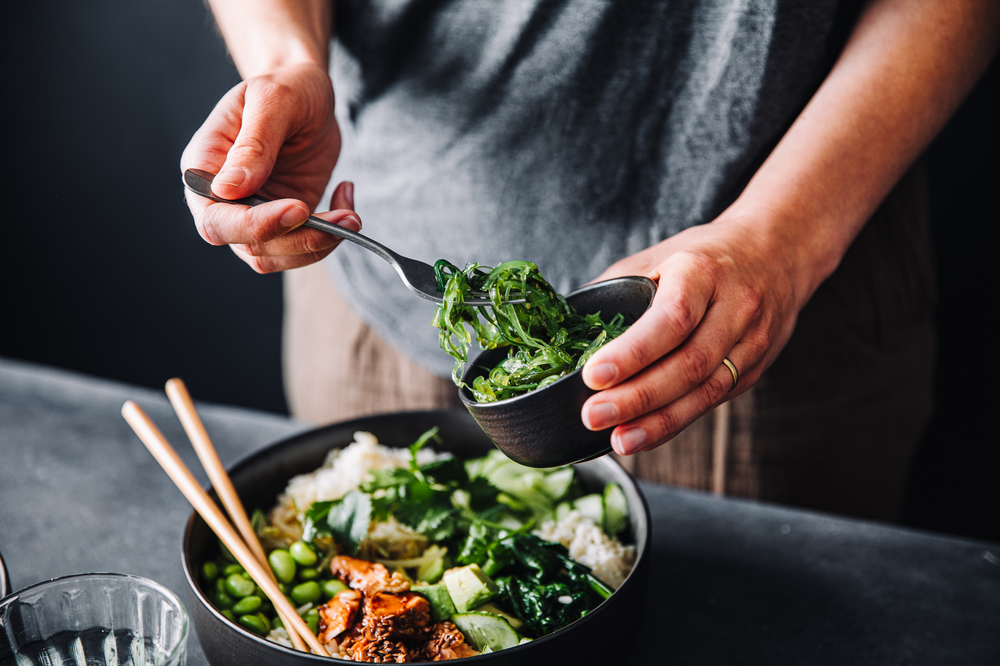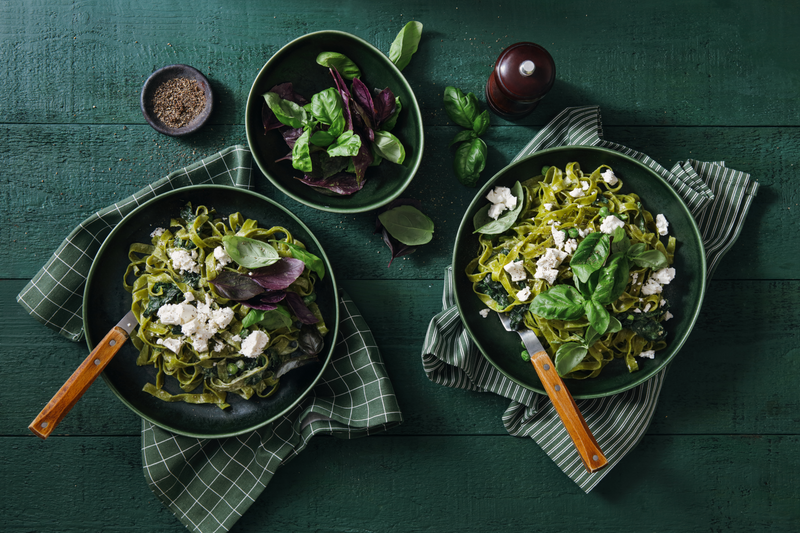What Does "Organic" Mean?
The term “organic” refers to food grown and produced using natural farming methods, which avoid synthetic chemicals, genetically modified organisms (GMOs), and prioritize sustainability. Organic farming relies on crop rotation, composting, and biological pest control to maintain healthy soil and ecosystems. When it comes to animal products, organic means that the livestock is raised on organic feed and isn’t treated with growth hormones or unnecessary antibiotics.
Organic foods are certified by regulatory bodies, such as USDA Organic in the U.S. and EU Organic in Europe. These certifications ensure that organic foods meet strict guidelines, making them more natural and often more nutritious.
Why Does Organic Matter for Your Long-term Health?
Switching to organic foods offers several benefits for both your health and the environment. While not every study agrees on the magnitude of nutritional benefits, many experts argue that organic foods provide key health advantages. Here’s why:
1. Reduced Exposure to Harmful Chemicals
Conventional farming often involves the heavy use of synthetic pesticides, herbicides, and fungicides to increase crop yields. These chemicals can remain on the food we eat, and long-term exposure to pesticide residues may pose health risks. By choosing organic, you minimize your exposure to these harmful chemicals, potentially lowering your risk of hormone disruption, fertility issues, and certain cancers.
2. Higher Nutrient Density
While research is ongoing, some studies suggest that organic foods may contain higher levels of nutrients, including antioxidants and vitamins like Vitamin C. Organic meat and dairy are often richer in omega-3 fatty acids, which are essential for heart health and inflammation reduction.
3. Better for Gut Health
Conventional farming practices often involve the use of antibiotics, which can disrupt your gut flora by killing off good bacteria. Organic foods, particularly organic meats and dairy, are raised without antibiotics, helping you maintain a healthier gut. A balanced gut microbiome is linked to improved digestion, better immune function, and overall well-being.
4. Environmental Benefits
Organic farming is designed to work in harmony with nature, reducing pollution, conserving water, and promoting biodiversity. By choosing organic, you’re not only improving your health but also supporting farming practices that benefit the planet and future generations.
5. Better Flavor
Many people find that organic foods, especially fruits, vegetables, and meats, taste better. This is often attributed to healthier soil and slower growth cycles that allow flavors to develop more fully.
The Dirty Dozen and Clean 15
Understanding the "Dirty Dozen" and "Clean 15" can help you make informed decisions about which foods to buy organic and which ones are safe to purchase conventionally.
The Dirty Dozen lists fruits and vegetables with the highest levels of pesticide residues when grown conventionally. These are the foods you should prioritize buying organic.
- The Dirty Dozen (2024 Edition):
- Strawberries
- Spinach
- Kale, Collard & Mustard Greens
- Peaches
- Apples
- Grapes
- Bell & Hot Peppers
- Cherries
- Pears
- Nectarines
- Celery
- Tomatoes
Since these foods are often consumed whole or have thin skins, they absorb more pesticides. Switching to organic for these items reduces your exposure to harmful chemicals.
The Clean 15, on the other hand, lists fruits and vegetables with the least pesticide residue. These items are typically safe to buy conventionally, as they absorb fewer pesticides due to their thicker skins or growing methods.
- The Clean 15 (2024 Edition):
- Avocados
- Sweet Corn
- Pineapple
- Onions
- Papaya
- Sweet Peas (frozen)
- Asparagus
- Honeydew Melon
- Kiwi
- Cabbage
- Mushrooms
- Mangoes
- Sweet Potatoes
- Watermelon
- Carrots
For more details on the Dirty Dozen and Clean 15, you can visit the Environmental Working Group’s website.
Actionable Steps to Start Eating Organic
- Prioritize the Dirty Dozen: If you're new to organic foods, focus on switching to organic versions of produce with the highest pesticide residues (the Dirty Dozen). This ensures you get the biggest health benefits for your money.
- Shop Local and Organic: Farmers' markets often sell organic produce at lower prices than grocery stores. Many local farmers use organic methods, even if they aren’t certified, providing fresher, pesticide-free food.
- Join a CSA: Community Supported Agriculture (CSA) programs allow you to buy a share of a local farm’s organic harvest. This can give you regular access to organic produce at a lower cost than supermarkets.
- Grow Your Own Organic Garden: Even a small garden can help you grow your own organic vegetables and herbs, giving you control over how your food is grown and saving you money in the long run.
- Look for Store Brands: Many supermarkets have their own line of organic products, which are often cheaper than national organic brands. Buying store brand organic items can help you save while still eating organic.
Contradicting Theories: Is Organic Always Worth It?
Although organic foods have clear benefits, not all experts agree that they’re always the better choice. Here are some key points of debate:
- Nutritional Differences: Some studies suggest that the nutritional difference between organic and non-organic produce is minimal. Critics argue that while organic foods might have slightly higher nutrient levels, the health benefits come more from avoiding pesticides and chemicals than from increased nutrition.
- Cost: Organic foods tend to cost more due to the more labor-intensive farming practices. For some people, the higher price may not justify the relatively small differences in nutrition and health benefits.
- Natural Pesticides: Organic farming can still use natural pesticides, which, although generally less harmful than synthetic ones, aren’t always completely safe. Natural pesticides can still have health and environmental impacts, although they tend to break down faster and pose less risk than synthetic chemicals.
How to Eat Organic on a Budget
Eating organic doesn’t have to be expensive. Here are a few ways to make organic eating more affordable:
- Buy In Season: Organic produce is cheaper when it’s in season. Shop for organic fruits and vegetables that are in peak season, and freeze or preserve extra to use later.
- Bulk Buying: Buying in bulk for staples like organic rice, beans, and grains can save you money over time. Look for sales or bulk offers in your local stores or online.
- Cut Back on Meat: Organic meat and dairy are among the most expensive organic foods. Try reducing your consumption of animal products and incorporating more organic plant-based proteins like beans and lentils into your meals.
- Frozen Organic Produce: Organic frozen fruits and vegetables are often cheaper than fresh organic produce and just as nutritious. This is a great option for adding organic foods to your diet without overspending.
What to Prioritize When Starting
If you're just beginning to eat organic, here’s what to focus on:
- Fruits and Vegetables: Start by switching to organic versions of the Dirty Dozen to reduce your pesticide exposure. These fruits and vegetables typically have the highest pesticide levels and will offer the most health benefits when eaten organic.
- Dairy and Meat: Organic animal products can be costly, but they are free from synthetic hormones, antibiotics, and GMOs, making them worth considering if you consume a lot of meat and dairy.
- Whole Foods Over Processed: When going organic, focus on whole foods like fruits, vegetables, grains, and proteins. While organic snacks and packaged goods can be tempting, they may still be highly processed and less nutritious than whole foods.
Conclusion: Is Eating Organic Right for You?
Choosing to eat organic can offer a range of health benefits, from reducing pesticide exposure to boosting your nutrient intake. It also supports farming practices that are better for the environment. However, eating organic doesn’t have to be an all-or-nothing decision. By prioritizing certain foods, shopping smart, and staying within your budget, you can enjoy the benefits of organic eating without overspending. Every step toward a more organic, sustainable diet can positively impact your health and the planet.




